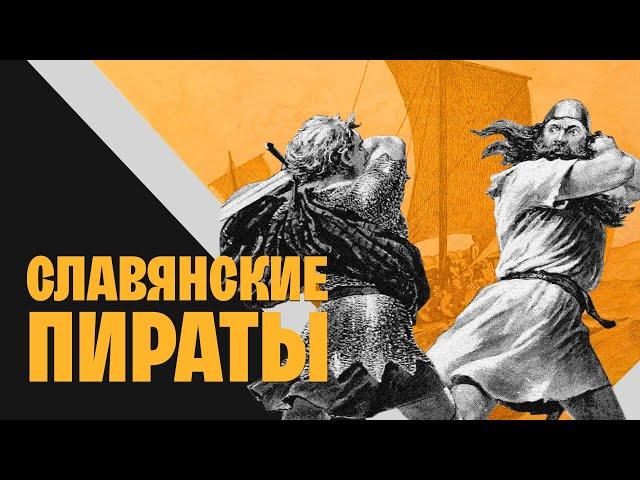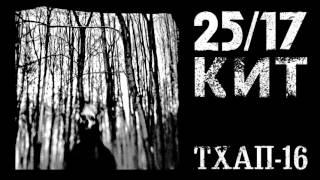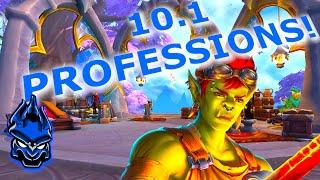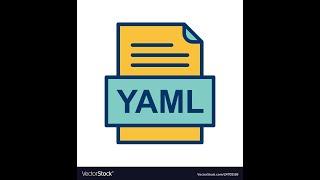
Как «славянские викинги» терроризировали Балтику
Комментарии:

Ладьи все же конструктивно и технологически отличались существенно от драккара: лодья она в основном для рек и мелкого моря, хорошо форсирует пороги.
Дракар морское ,даже можно сказать, океанское судно.
На нам можно в Атлантике плавать, и в дельте реки.
Парус у лодьи из льна а сама она по сути выдолблена из ствола.
Дракар собирается из досок.
Разные корабли для разных водных просторов.

Автор ...подчеркни что русские ...это не Словяне а Мокша Мордва ...бывшие в подчинении у РУСОВ КИЕВА.... потому и русские.
Ответить
Очередная чушь.История от Мокши Коли Старикова ??? Словяне в море не лезли.
Ответить
Бляд... Почему после викингов то? Они вроде современники.
Ответить
какие славяне после 12 века ты совсем глупый? это уже рус и тд)) еще и хрещённая. информация для быдла из первого источника который автору попался на глаза
Ответить
Originally, before the founding of the Normanist theory (and even after), the Rurikids were denoted as a Slavic dynasty, and the theories were the result of ethnographic and historical studies and not the weaponization of the Legend of the Invitation. The summaries of the theories are the following:
The Western Slavic version
A counter-theory to the "Norman theory" is the version where Rurik stemmed from the Pomeranian Western Slavs. "The Tale of the Bygone Years" directly states that Rurik, being a Varangian, was neither a Norman, nor a Swede, nor an English, nor a Goth.
Varangians from Wagrians or Prussians
The Austrian notable Sigismund Herberstein, being an adviser to the ambassador to Muscovy in the first half of the 16th century, was one of the first Europeans to get acquainted with the Russian chronicles and expressed his opinion about the origin of the Varangians and Rurik. Linking the name of the Varangians with the Slavo-Baltic people of the Wagri, Sigismund von Herberstein comes to the conclusion that: “Russians summoned their princes rather from the Wagri, or Varangians than handed over power to foreigners who differ from them in faith, customs, and language". The Scandinavians and the Germans called the Wagri and all the Pomeranian Slavs the Wends. Synchronous sources do not contain information about the connection of the Pomeranian Slavs with the Varangians, although, in the 2nd half of the 10th century, Wendish naval campaigns against their neighbors were a noted sight.
Lomonosov denotes Rurik and the Varangians as having descended from the Prussian lands, relying on toponyms and later chronicles, which replaced the lexeme “Varangians” with the pseudo-ethnonym “Germans”. Lomonosov “a priori” accepted the Slavic origin of Rurik as an irrefutable fact:
... the Varangians and Rurik with their clan, who came to Novgorod, were Slavic tribes, spoke the Slavic language, came from ancient Russians/Slavs, and were by no means from Scandinavia, but lived on the eastern-southern shores of the Varangian Sea, between the Vistula and Dvina rivers ... Scandinavia and on the northern shores of the Varangian Sea is nowhere to be heard ... Our chroniclers mention that Rurik and his Rod came from Nemets, and in some cases, it is written that from Prussia ... Between the Vistula and Dvina rivers, it flows into the Varangian Sea from the east-south side of the river, which above, near the city of Grodna, it is called Nemen, and Rusa is reputed to its mouth. Here it is clear that the Varangians-Rus lived in the eastern-southern coast of the Varangian Sea, near the Ruse River ... And the very name Prussians or Poruss shows that the Prussians lived along the Russes or alongside the Russes. Lomonosov. - "Objections to Miller's Dissertation"
Mecklenburg genealogies
There is a folk legend pertaining to Rurik and his brothers, published in the 1830s by the French traveler and writer Xavier Marmier in the book "Northern Letters". He recorded that in Northern Germany, among the Mecklenburg peasants, formerly vigorous, by that time almost completely Germanized. The legend tells that in the 8th century, the tribe of the Udrites was ruled by a king named Godlove, the father of three sons, the first of whom was called Rurik Mirny, the second - Sivar the Victorious, third - Truvar the Faithful... The brothers decided to search for glory in the lands to the east. After many deeds and terrible battles, the brothers came to Russia, whose people suffered under the burden of a long tyranny but did not dare to rebel. The encouraging brothers awoke the lulling courage in the local people, led the army, and overthrew the rule of the oppressors. Having restored peace and order in the country, the brothers decided to return to their venerable father, but the grateful people begged them not to leave and take the place of the former kings. Thus, Rurik received the Novgorod principality (Nowoghorod), Sivar - Pskov (Pleskow), Truvar - Belozerskoe (Bile-Jezoro). Since after a while the younger brothers died without leaving any trueborn heirs, Rurik annexed their principalities to his own, becoming the founder of the ruling dynasty. It should be noted that this is the only mention of Rurik in “Western” folklore, although the date of the legend cannot be established. The legend was written down a century after the publication of Rurik's Mecklenburg genealogy (see below).
At the beginning of the 18th century, a number of genealogical works appeared on the dynasties of the Northern German lands of Mecklenburg, the former area of the settlement of Slavic tribes of “cheer” or “vigor”. In 1716, the vice-rector of the gymnasium, Friedrich Thomas, published work for the wedding of the Duke of Mecklenburg Karl Leopold and the Russian princess Catherine, daughter of Tsar Ivan V. Thomas used a 1687 manuscript written by the notary of the Mecklenburg court count Johann Friedrich von Chemnitz, who, in turn, referred to then the manuscript of 1418.
According to this German version, the king of the Witslav, an ally of Charlemagne, was killed by the Saxons in 795. His eldest son Traskon (Drazhko, Dragovit) inherited the crown, and another son, Godlib (or Godelive, or Godslav), fell in 808 during the siege of Rerik by the Danish king Gottfried. All these data are taken from the Annals of the Kingdom of the Franks. Johann Huebner, who published his genealogical tables in 1708, reports new information that the sons of Godlib, Rurik, Sivar (Sineus in the Russian chronicles), and Truvor went to Novgorod (Nowoghorod) in 840.
The Wendish Falcon
The Slavic tribe Bodrichi/Obodrites, or cheer, were also called reregami... Adam of Bremen testifies.
There are many Slavic peoples. Among them is the most western Wagras/Wagri, living on the border with the Transalbing. Their city lies by the sea of Oldenburg. Then follow the encouraged, who are now called the reregs, and their city is Magnopolis.
The 19th-century historian Gedeonov suggested that Rurik is not his given name, but the generic nickname Rerek, which was worn by all representatives of the ruling dynasty of the Obodrites. The assumption was substantiated by reference to the Scandinavian sagas, where allegedly the skald Guthorm Sindri calls the Wendish Slavs “falcons”. The quoted passage refers to the saga of Hakon the Good from the "Earth Circle" by Snorri Sturluson. Guthorm Sindri speaks of “falcon distance" In the context of the war in the 2nd half of the 10th century, King Hakon with the Vikings -" both Danes and the Wends". In the Scandinavian sagas, the Wends (Pomeranian Slavs) began to engage in great pirates from the 10th century, in earlier times, sources record only their land-born campaigns. Subsequently, the author of "The Lay of Igor's Host" calls the adults of Rurik falcons and the prince's falcons, but this epithet has been applied since ancient times to people of noble origin.
The Wends, unlike the Norsemen, targeted seats of power and other large "civitas", the greatest example of their military and naval power was the Destruction of Konungahella (and other large cities, like Hamburg) during the Wendish Crusade, the largest city in 12th-century Northern Europe.

Вятские - ребята хватские🤘
Ответить
У славян не было рабовладения!А полыняне жили практически на равные с их хозяевами,и вообще вся Прибалтика была славянской!
Ответить
С 4-5 века Славяне были хозяинами на Балтике, а не пиратами. По Южному берегу Балтики. Они обеспечивали Балтийский торговый путь, построили Новгород.
Ответить
Н. Тыц- пездыц! Как-то вы агрессивно начали.
Ответить
Брешете, собаки...
Ответить
Создатель этого видео несёт какую то чушь, может быть, вроде было так, скорей всего, мы предполагаем, наверное, После данных слов лучше далее не смотреть, т.к начинают сами додумывать, придумывать, фантазировать.
Мы не знаем что было 200,300 лет назад, не говоря уже о 12веке.

Чушь
Ответить
Прикольно !!!
Ответить
Отсюда вывод. Пока славяне поклонялись своим родным Богам, им способствовала удача. Как только стали поклоняться еврейской Троице, так инородцы и иноверцы их стали притеснять и уничтожать. Особенно это заметно, в настоящее время.
Ответить
Хуета, отписка дислайк
Ответить
Викинг- занятие, а не племя; поляки - тоже словяне, как и полабы 🧐
Ответить
было бы здорово, если бы указывали источники, из которых берете информацию для сюжетов, менее голословно получилось бы
а так видео очень интересное!

Зачёт. 👍 Очень интересно. На одном дыхании смотрю.
Ответить
Пурга какая-то...
Ответить
Разве это не попытка опорочить славян и обвинить нас и наших предков в агрессивности?
С учётом того, что название у канала нерусское, я отношусь к этому ролику недрверчиво.

Что любопытно, немецкие историки веками продавливали мнение о том что исконными жителями южного балтийского побережья были германцы, которых вытеснили славяне, которых спустя века прогнали с "исконно германских земель". И сегодня по традиции они держаться за эту идею зубами, не взирая на археологические данные. Посмотреть только какую войну устраивают в Википедии в статьях о ругах и Рюгене. Понятно - им не охота переделывать историографию и всю работу. А для славян политическая актуальность этого вопроса давно прошла - не поднимать же вопрос отвоевания "исконно славянских земель" у Германии или осуждения геноцида славян германцами в 12в. По факту же западная Европа была изначально кельтской и славянской, а германцы её постепенно завоевали
Ответить
Благодарю за информацию....
Ответить
Вспомните русские народные сказки. Кто герои наших сказок? Святогор, Илья Муромец, Алёша Попович, Добрыня Никитич и другие - защитники земли русской и народа. А тут рассказывается, что русский народ первые разбойники. Это самое настоящее враньё.
Ответить
Вот оно как...
Интересно.

Что не помгю, чтобы на Руси было рабство.
Христианство и пиратство не совместимы? - насмешили. Испанцы, англичане и ... обидятся на такое незнание

Пропаганда России снова врёт. История взята из сказок.
Ответить
Настоящие крысы те, кто клевещит и травит других. СловЯне, где ЯНЬ Светлое Божественное начало, это не национальность, они есть носители Слова Божия. Им непозволительно и незачем было на кого-то нападать, а тем более грабить. Если только не из цели, для самообороны своего народа от захватнических умыслов.
Ответить
😂да чушь! Смешали все времена! Золотая Орда со століцею руским городом АстроХань и есть Росия!
Ответить
Польша в 11 веке? 😁😁😁
Ответить
У Славян не было рабства!! Не Ссыте в уши Людям!
Ответить
Кстати, карелы в 5 веке разоряли Сотокхольм! Задолго до Петра шведам зубы выбивали наши ребята из уральского рода! Вот так вот. Это сейчас автономная республика в составе РФ.
Ответить
А Германия тоже была? Бред сивой кабылы.
Ответить
👍
Ответить
👍
Ответить
Контент хороший, жаль что вы рекламу у Ютуба заказываете, а не у блогеров со схожей тематикой. Так бы и денег сэкономили и дебилов бы меньше собрали в комментах
Ответить
Что славяне что викинги думаю что это один и тот _ же народ.
Ответить
Бред
Ответить
Мультипликатор хремов
Ответить
Масковия не было такого государства
Ответить
Кончай боярьішником заливаться,тьі видишь что гребет как от шмали.
Ответить
БРЭХАТЬ ВИ.ГАРНО. НАУЧИЛИСЬ. ВОТ ВИ И ЕСТЬ КОРСАРЫ.
Ответить
Очень бодро 😝
Ответить
Даєш: катком: правди і елементарної логіки,по офіційній брезливій: наукі: Наснаги та Розвитку!
Ответить
Х
Ответить
Ничоси я такого не ожидал :0
Ответить
Удивительно гладко излагается неизвестная, доселе, история. В чем подвох?
Ответить
А что Финляндия уже тогда была?
Ответить
..., от куда у славян взялись лодки? Они до эпохи Петра и весло сделать не могли... Чё, цап-царап?
Ответить
Вранье, что-бы принизить славян, чего только не выдумают.
Ответить










![[FREE] Curren$y Type Beat x Smooth Type Beat - "The Comeback" [FREE] Curren$y Type Beat x Smooth Type Beat - "The Comeback"](https://invideo.cc/img/upload/c1RjeUxpYVZFdnQ.jpg)














